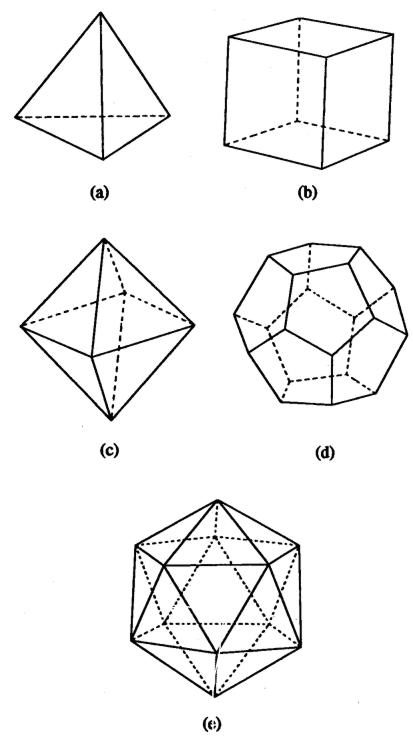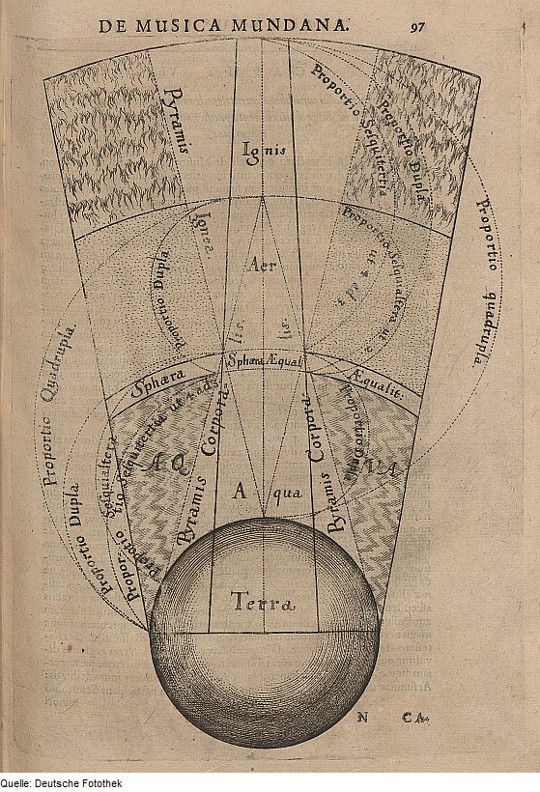
We have grown so accustomed to talking about atoms, the Periodic Table of the elements, and how these elements have been forged in the nuclear furnaces at the centers of stars, that we tend to forget that our understanding of the chemistry and physics of atoms is a relatively recent development.
For example, in Christopher Marlowe's play Tamburlaine the Great (written around 1587), the protagonist declares:
Nature that framed us of four elements,
Warring within our breast for regiment.
Here Marlowe was expressing the common view at the time that even human health and personal characteristics (such as curiosity and ambition) are governed by the four classic elements: earth, water, air, and fire.
The first person to advocate that the entire universe is both composed of and controlled by these four elements (although he called them "roots"; the term "element" having been introduced by Plato), was the pre-Socratic philosopher Empedocles (490-430 BCE). Note that to Empedocles the elements were not simply the constituents, or building blocks of everything, their proportions determined even the mood of people. These ideas were adopted and further expanded upon by the famous second-century Greco-Roman physician, Galen of Pergamon. He suggested, for instance, that the dry, cold Earth was associated with melancholy, while the origin of hot blood was moist air. Fourteen hundred years later, when Shakespeare's Marc Antony wanted to praise Brutus in Julius Caesar, he said:
His life was gentle, and the elements
So mixed in him that Nature might stand up
And say to all the world, "This was a man."
Plato may have been the first who actually tried to use the four elements to construct some form of elementary "chemistry." In his dialogue Timaeus, he associated the four elements with four of the Platonic solids (Figure 1). The earth was symbolically represented by the stable cube; fire (being "penetrating") by the pointy tetrahedron (Figure 1a); the "mobile" octahedron (Figure 1c) was air; and the multifaceted icosahedron (Figure 1e) -- water. The fifth solid, the dodecahedron (Figure 1d), represented the cosmos as a whole. Aristotle continued with a similar concept, noting that the stars (thought to be absolutely unchanging) had to be made of a fifth, immutable element, the aether. Plato went further to describe the equivalent of basic "chemical reactions." For example, he suggested that when water is heated by fire, it produces two "particles" of air (vapor) and one "particle" of fire.

Figure 1. The Platonic solids.
As we have seen, these deliberately vague ideas persisted with small modifications well into the sixteenth (and to some extent even into the seventeenth; see Figure 2) century. The Medieval alchemist Jābir Ibn Hayyān added two more to the four classical elements -- sulphur, "the stone that burns," and mercury, representing metallic characteristics. However, as late as 1626 the English poet John Donne still wrote: "In the elements themselves, of which all sub-elementary things are composed, there is no acquiescence, but a vicissitudinary transmutation into one another, Ayre condensed becomes water, a more solid body, And Ayre rarified becomes fire, a body more disputable, and in-apparent."

Figure 2. A segment showing the four elements of earth (terra), water (aqua), air (aer), and fire (ignis). Copper engraving by Robert Fludd, made in 1617. From: http://en.wikipedia.org
Only through the works of Robert Boyle (1627-1691), Antoine Lavoisier (1743-1794), and John Dalton (1766-1844), who at times are each called the "father of chemistry," was modern chemistry finally born. Today we talk about chemical reactions occurring not only here on Earth, but even in the interstellar medium. We may have lost the naïve simplicity, but we have gained the understanding, precision, and predictive power.